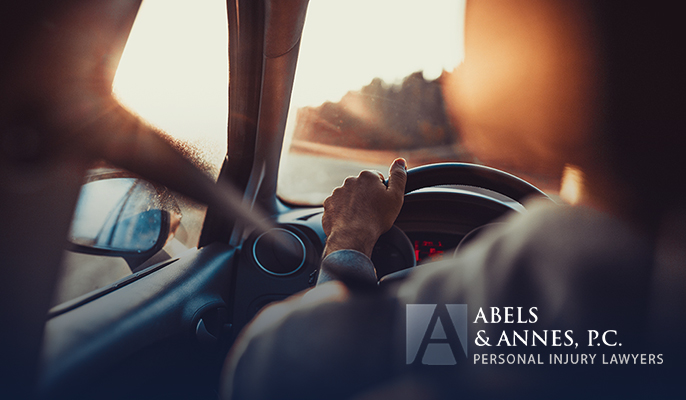
Car Accident Injuries That Commonly Cause Soreness
The force of impact from a car accident can cause many types of injuries to a driver or occupant. In some cases, soreness is a direct response to the injury, and in other cases, soreness can be a symptom of a specific type of injury. Below we provide an overview of some of the most common culprits of soreness after a car accident.Neck Injuries
Many car accident victims experience some level whiplash during an accident. You might already know that whiplash is a neck injury, but it specifically refers to soft tissue damage in the neck that occurs when the muscles and ligaments around the neck go beyond their normal range of motion from the impact of a car crash. Individuals who suffer whiplash typically experience soreness in their necks and sometimes shoulders. In mild cases, pain can subside rather quickly. However, in severe cases, pain may last for months and sometimes becomes chronic. This may drastically reduce a person’s quality of life when the pain interferes with their job and day-to-day activities. Further, if the pain doesn't go away, you may have a disc herniation. This type of injury could require injections or even surgery. If your pain level is not improving, your doctor may order an MRI. This diagnostic test will detect whether you've sustained a herniated disc in the accident.Traumatic Brain Injuries
Research shows that about one in five people who suffer a traumatic brain injury (TBI) doesn’t completely recover and thus experiences chronic pain. Car accidents can lead to mild TBIs, more commonly called concussions, or severe TBIs. Even mild concussions, however, can cause symptoms for years. The exact location of the pain and the extent of pain depends on what part of the brain was injured. But chronic headaches and soreness in the neck are the most common types of pain that TBI patients experience. If you experience increased pain in your neck or headaches that don’t subside, see a physician immediately.Back Injuries
Car accidents can lead to a wide range of disc-related back injuries. Once again, depending on the severity and type of injury, you may feel sore for weeks, months, or years. Bulged or herniated discs can cause soreness at the site of the injury and all around, which likely will not subside without injections or corrective surgery. Even surgery doesn’t always eliminate soreness in the back for car accident victims. Sometimes, back injuries can result in pinched nerves, too. A severely pinched nerve can cause sharp pain, but mildly pinched nerves can cause a general soreness in the area of the injury.Fractures
If you broke one or more bones in a car accident, you may need surgery. Or you may just need to wear a cast or splint while the bones heal. You may experience pain during this time, which can last for months. Further, you might also have some residual pain after doctors remove your cast. In other situations, soreness in a specific area may be a symptom of an undetected break or hairline fracture. Severe fractures, especially compound fractures, sometimes don’t heal perfectly. This can leave car accident victims to struggle with soreness from arthritis near the site of injury for years after the injury.Soft Tissue Damage
Damage to the soft tissues of the body, such as muscles, tendons, and ligaments, is one of the most common causes of soreness. Your muscles tense up during a car accident, which can lead to soreness for days or weeks. Sprains and strains also commonly occur during car accidents; you can expect most of the soreness from a sprain or strain to subside within six to eight weeks. More serious soft tissue damages, such as torn ligaments or tendons, can cause soreness for much longer. The extent to which an accident victim experiences pain from these soft-tissue injuries depends on whether they completely heal or not. For example, a torn meniscus or torn ACL tendon may require surgery and physical therapy before soreness dissipates.Internal Organ Damage
Most car accident victims assume that they will be sore in the days following an accident. Due to this reasoning, some avoid seeking proper medical treatment. However, soreness that occurs soon after the accident, especially if it increases, can be a symptom of internal organ damage. Left untreated, damaged organs may in rare cases lead to death.Factors That Affect How Long You Experience Soreness After a Car Accident
 Sources of soreness in your body vary, and so can the time it takes to heal. Some types of injuries simply heal better and faster than others. Other factors may also impact how long you feel sore after a car accident.
These include:
Sources of soreness in your body vary, and so can the time it takes to heal. Some types of injuries simply heal better and faster than others. Other factors may also impact how long you feel sore after a car accident.
These include:
- Age. Younger accident victims typically heal faster than older victims, especially when recovering from fractures.
- Speed. The faster the vehicles were traveling when a car accident occurred, the more likely a severe injury will occur. Also, the more time needed for the soreness to subside. High-speed accidents also increase the chances of chronic discomfort.
- Safety devices. Seat belts and safety devices can save your life during a car accident. However, they also can cause injury, including bruising and broken bones, which may extend the amount of time you feel sore after a car accident.
Abels & Annes, P.C. 100 N LaSalle St #1710 Chicago, IL 60602 (312) 924-7575

